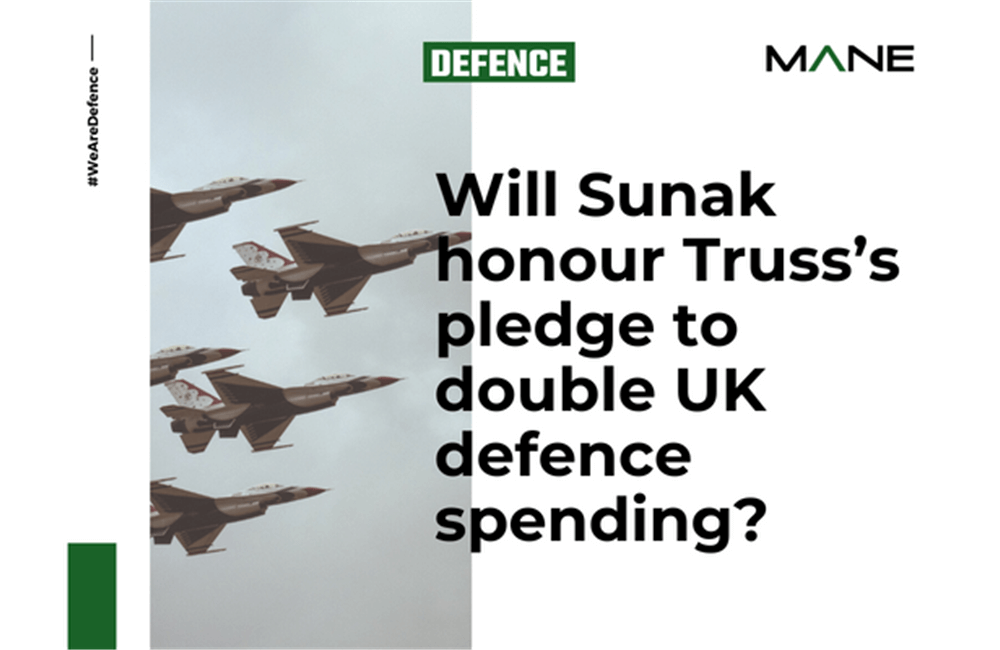Will Sunak honour Truss’s pledge to double UK defence spending?
27 Oct, 202210 minsRishi Sunak has refused to commit to Liz Truss’s promise to spend three per cent of GDP on d...

Rishi Sunak has refused to commit to Liz Truss’s promise to spend three per cent of GDP on defence.
Truss’s pledge, which defence secretary Ben Wallace said would double defence spending to £100bn by 2030, was a key plank of her leadership campaign.
ERG chairman Mark Francois said Sunak “did not commit to three per cent but said he was determined if he were prime minister that he would spend whatever is necessary to keep the country safe”.
Last week it was reported that Wallace would "hold the prime minister to the pledges made”, suggesting he could resign, and the armed forces minister James Heappey had previously said he would quit if the 3% commitment was dropped.
However, Wallace has decided to stay and has retained his job as defence secretary in Sunak’s reshuffle. Wallace consistently tops polls as the most popular Tory Cabinet minister, and Sunak is likely to have welcomed his decision to stay, as it gives an impression of unity in the party.
In an interview with the Sunday Telegraph during Truss’s premiership, Wallace said the military was “actually going to grow” for the first time since the Cold War – although he stopped short of committing to reverse a planned near-10,000 cut in the number of army troops.
Truss’s promise to increase defence spending from 2.1% of GDP to 3% by 2030 was well above a pledge made by Boris Johnson in June to increase it to 2.5% in the same timeframe.
Wallace said Truss’s promise would be worth “a huge amount” to the military: “On current forecast, that’s roughly a defence budget of £100bn in 2029-30. We’re currently on £48bn.”
However, economist Ben Zaranko of the Institute for Fiscal Studies said this was something of an overstatement, as only about £23bn of the extra £52bn represented a real-terms spending increase, and the rest was accounted for by inflation and economic growth.
Wallace declined to say where the extra money would be spent, but said it was “highly likely” the size of the army would grow, and anti-drone warfare, signals intelligence and artillery were likely to expand.
The war in Ukraine has demonstrated the importance of drones for reconnaissance, and of battlefield intelligence to help Ukrainian forces strike back at Russian munitions hubs and command centres, while Russia has used its tenfold superiority in artillery to occupy territory in the eastern Donbas region.
Eastern European NATO allies like Poland and the Baltic states want western European countries like the UK to send more troops to defend them from potential Russian incursions, which could motivate the government to cancel the planned cut in troop numbers. The UK has already increased its military presence in Estonia to 1,700 this year, with a further 1,000 troops on standby if needed, as part of a revamped force of 300,000 NATO troops across Europe.
However, relations between Wallace and Sunak are not entirely untroubled. Wallace also used the Sunday Telegraph interview to complain about Sunak’s behaviour as chancellor, having fought several battles with him over military spending when Johnson was prime minister. He accused the Treasury of a sustained “corporate raid” on military spending, “even to the point of Rishi’s Treasury trying to stipulate the size of the army”.


